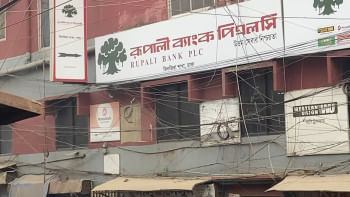On the language of identity

Identity – an ambiguous term and the definition of which lacks conceptual clarity much like the term 'globalisation' itself which, many will argue, defies conventional categories due to its multifacetedness – is the feeling of belonging or sentiment d'appartenance, to a social group by way of ethnicity, religion, language, culture, ideology, etc. The 'national identity' today can be understood as an amalgamation of individual identities of people living in a heavily globalised world in which interdependence between economies leads to increased interaction, including linguistic exchanges on both the local and global level.
Linguistic identities, in particular, are part of the broader 'social identity' and refer to a sense of belonging to a community or group mediated through the resource of language. The far-reaching effects of globalisation touch on all spheres of life, and their implications for linguistic identities in the present day have been the subject of rigorous academic study for quite some time.
Given the significance of today, February 21, which marks the 65th anniversary of the Language Movement that elevated the ethno-linguistic rights of the Bengali people onto the national stage and catalysed the struggle for independence of erstwhile East Pakistan, the time seems apt to talk about how we, as Bangladeshis (that includes the multitude of ethnic minorities), understand the self through language in the modern day.
How has globalisation and English as the global lingua franca affected the dominance of Bengali – spoken by the majority – in modern day Bangladesh whose very birth was rooted in, amongst many things, the fight against linguistic discrimination and cultural oppression? Is the importance of Bengali fast eroding, as many would argue, in terms of being a meaningful marker of self-identity? What about that of the mother tongue of the various ethnic minorities throughout the country who have distinct linguistic features of their own?
Ninety-eight percent of Bangladesh's population is both ethnically and linguistically Bengali, and the rest of the two percent are comprised of over forty ethnic minorities including the Chakma (the largest ethnic group in the Chittagong Hill Tracts), Marma, Mro, Oraon, Murong, Khasi, and Garo, to name a few. For natives of the country, the dominance of Bengali, despite the penetration of English into the various facets of our lives, is obvious in Bangladeshi society, and its status is a direct consequence of 'majority rule'.
In fact, it is the distinct languages of the ethnic minorities that are in danger of being lost, which is, in effect, a precursor to the erasure of entire communities. One of the first stages of minorities 'assimilating' to the dominant Bengali culture is having to give up their native language – for purposes of business, employment, education, etc. What this ultimately leads to is a sort of linguistic homogenisation and an erosion of the pluralistic identity of the society at large.
Bengali holds an incredibly commanding role in the day-to-day affairs of people's lives. In Bangladesh, one can get by just fine not being able to speak a word in English. Globalisation may have brought us higher exports, foreign direct investment and remittances, and worsened social disparity, but the idea that English, the language of international communication, is a threat to the linguistic identity of the Bengali-speaking majority of Bangladesh is a myth easy to buy into. It is an exaggeration when we say English is a menace to the pre-eminence of Bengali in modern society because Bengali is the principal working language of our national economy and will remain so for a long time. This unfounded view is perhaps a microcosm of the prevalent 'anti-western culture' sentiment that irrationally views the infiltration of any element of the West as harmful.
On the contrary, it is the Bengali language whose very dominance threatens to weaken the foundations of minorities' linguistic identities and understanding of the self through their native language. Even though people belonging to ethnic minority groups speak their native language at home the majority of them are unable to write in their own language.
The national education policy that overwhelmingly favours Bengali over minority languages is the root cause for their endangerment. The good news is that the Bangladesh government, at the beginning of this year, distributed pre-school educational materials in the native language of five ethnic minority groups. It's a start. However, there are still no textbooks for Class I and above in the five languages and around sixty percent children of ethnic minorities remain out of coverage.
There is a cruel irony in ethnic minorities – whose own languages are under existential threat – celebrating Ekushey. Commemorating the rise of Bengali, a language whose history is so intimately tied to a people's linguistic rights, a language which has begun to encroach upon the very linguistic rights of the minority 'other' in present day Bangladesh.
Jhumpa Lahiri, in an article in The New Yorker, writes about the intricacies of belonging to a language, and the schisms between the self and the mother tongue when the latter seems like a foreign language. She writes, "When you live in a country where your own language is considered foreign, you can feel a continuous sense of estrangement. You speak a secret, unknown language, lacking any correspondence to the environment. An absence that creates a distance within you." This reflects the reality of 'alienation through language' for the ethnic minorities in Bangladesh who, like Lahiri, must feel like they are in 'linguistic exile', and whose mother tongues are foreign in a land of their own.
The writer is a member of the editorial team at The Daily Star.


 For all latest news, follow The Daily Star's Google News channel.
For all latest news, follow The Daily Star's Google News channel. 



Comments